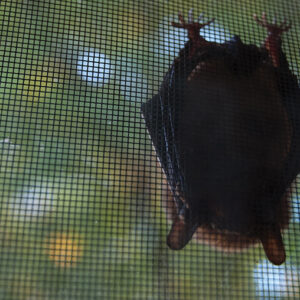
Bat Tests Positive for Rabies in Spokane County
Kelli Hawkins, SRHD | khawkins@srhd.org | 509.324.1539, c (509) 994-8968
SPOKANE, Wash – Spokane Regional Health District (SRHD) confirms by laboratory testing, that a bat found in Spokane County tested positive for rabies.
A Spokane County resident notified SRHD of a pet-only exposure to the bat. In accordance with WAC 246-100-197, SRHD staff advised the family to seek veterinarian care for their cat and to remit the bat for rabies testing. The bat was submitted to the Washington Animal Disease Diagnostic Laboratory (WADDL) for confirmatory testing and was confirmed positive by Washington State Department of Health (DOH) on Aug. 26, 2023. This is the first rabid bat reported in Spokane County and the eighth in Washington state in 2023 (Rabies Activity in Washington). The last positive case of rabies in a bat in Spokane County was in 2020 (Bats Tested for Rabies Virus by County of Submission).
The cat has received veterinary care and is in isolation under the owner’s control. It will be closely observed for any signs of illness over the next 45 days.
It is required for dogs, cats and ferrets in Washington state (WAC 246-100-197) to be vaccinated against rabies and re-vaccinated following veterinary and vaccine manufacturer instructions.
Rabies is a deadly virus that affects the central nervous system. Any warm-blooded mammal, including humans, can get rabies; however, bats are the only animal in Washington state known to carry rabies.
Since bats are mostly active at night, to help prevent pets’ contact with a bat:
- Bring pets into the house at night
- Keep all doors and windows closed unless screened
- Close pet doors to prevent pets from going outside or bringing a bat inside the house
When Pets Catch Bats:
- Safely catch the bat if possible, taking care not to contact the bat (see below)
- Thoroughly wash any bite wound on the pet with soap and water while wearing gloves. Bats have small teeth and claws, so bite marks may be hard to see.
- Even if you don’t see a bite wound, contact SRHD at (509) 324-1560, ext. 7 for additional instructions
- Contact your veterinarian for a rabies booster for the pet
When bats are found on your property, contact SRHD and your health care provider when:
- People or pets have direct contact with the bat
- A bat is found in a room or had access to a room with a sleeping person
- A bat is found in a room with an unattended child
- A bat is found in a room with a person under the influence of alcohol or drugs, or who has another sensory or mental impairment
More information about bats and rabies can be found at srhd.org > Bats & Rabies. This page includes printable, pdf fact sheets regarding:
- Bats on Your Property
- Bats in Contact with People
- Bats in Contact with Pets
- BatSmart FAQs
